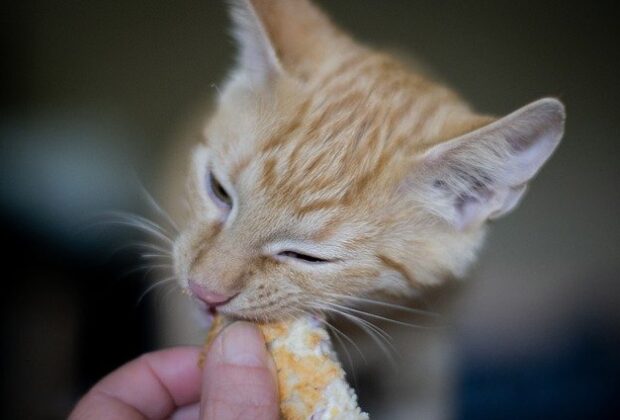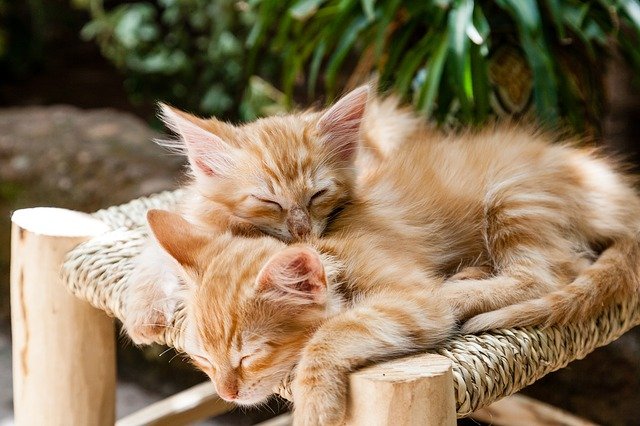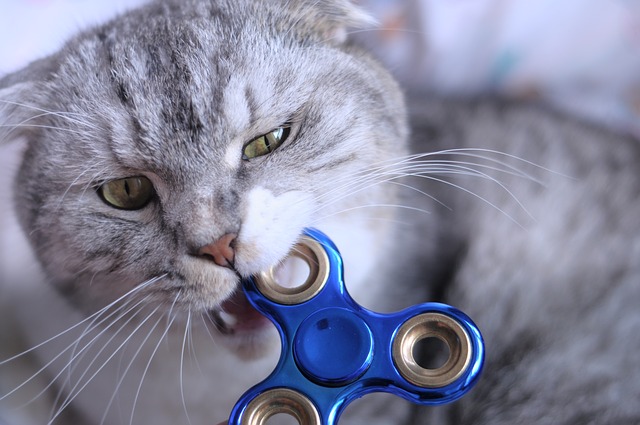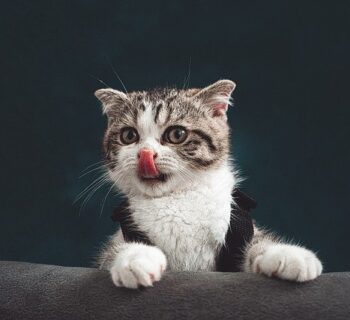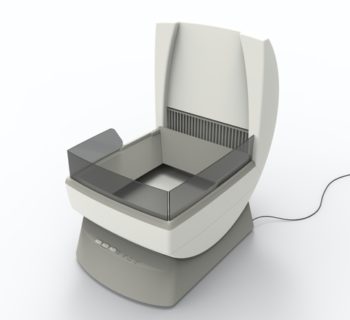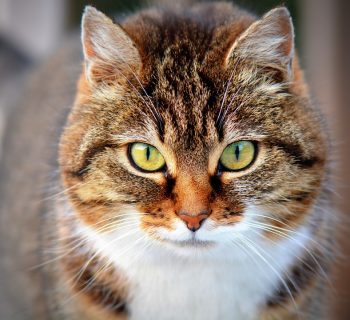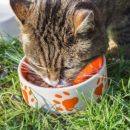Have you just noticed this habit? At first, you order your feline to stop, and they do, but they are back chewing on plastic a few days later. If so, you probably have a few questions that need answering. Why do cats eat plastic? How can you stop your cat from eating it? I'll answer all of these questions and more in this article, and if you've had to deal with this situation before, share how you handled it in the comment section.
Table of Contents
Why Does My Cat Try to Eat Plastic?
Why does your cat try to eat plastic? There are several reasons cats are attracted to plastics. The noise plastic makes, the smell from the plastic's content, the smooth feel on your feline's paws, anxiety, a poor diet, and even pica (consumption of non-food items). Yes, even cats can suffer from pica.
Nutritional Deficiencies
Deficiencies in essential nutrients can cause your feline to find other ways to make up for it. This may include eating non-food items such as plastics. Check to ensure that your cat's diet is rich in protein, low in carbs, and contains a moderate amount of fat and other beneficial nutrients.
To get these, you want to avoid foods that contain "by-products" and mainly grains. These are often lacking in essential quality protein and fats. Instead, opt for foods with quality protein from animal sources, e.g., turkey, chicken, liver, and fish. And make sure any food you pick contains as few ingredients as possible and that they are all listed out. Many pet foods are loaded with ingredients that are often nutritionally worthless to our pets.
Stress
Like their humans, felines can sometimes be affected by stress. And while they manage many other conditions well, stress is something cats, like most other pets, cannot tolerate so well. The stressors can include being frequently left alone, having to deal with attention from kids who do not really know how to act around them, bullying from other pets in the home, a health condition, and little to non-existent playtime.
To deal with any of these issues, your cat can take up eating or playing with plastics or engaging in activities he probably wouldn't naturally.
What you can do is try to eliminate these stressors and, in their place, engage your cat in activities they truly enjoy.
A Health Condition
An underlying health problem can sometimes make a cat seek ways to feel better. This may include chewing on plastics until they are diagnosed and treated. Common health conditions that could make your cat eat or nibble on non-food items are diabetes, hyperthyroidism, low immunity, and dental issues.
If you suspect that an underlying condition might be why your feline eats plastic, you should consult with your vet for a proper diagnosis and treatment.
Often, cats will hide their ill health away from their owners, which means that they hardly ever show signs of being sick. Unless you do your part by closely observing and providing the medical care needed, any of these conditions could worsen and even become fatal.
They Love the Sound Plastics Make
Many felines enjoy the sound of crinkling and have no intention of ingesting these materials. However, if you are uncomfortable with something, you can find an alternative chew toy with a similar crinkling sound to help satisfy that craving.
Curiosity
Sometimes, when cats chew, lick, or even eat plastic, it is merely out of curiosity and boredom. This behavior is typical in kittens still trying to learn about their environment. To educate himself, your cat may resort to chewing or biting any of such materials he finds around.
However, this does not in any make the behavior safe. So, watch your cat closely, and with younger kittens, you have to be super watchful to prevent this behavior as often as possible. You don't want them getting in harm's way or destroying your properties.
Anxiety and Stress
As mentioned earlier, several factors could cause your cat to become anxious and stressed and lead to behaviors like eating plastics/pica. Cats will find a way to let out anxiety, and eating or chewing on plastics is one such way.
How to Stop a Cat From Eating Plastic
As excusable as these reasons may be, plastic chewing is not a behavior you should tolerate or overlook. And for good reasons, because it can become hazardous to your cat and incur you expenses from replacing the destroyed materials. Thankfully, there are certain things you can do to effectively and quickly put a stop to the behavior. I'll discuss some of them here.
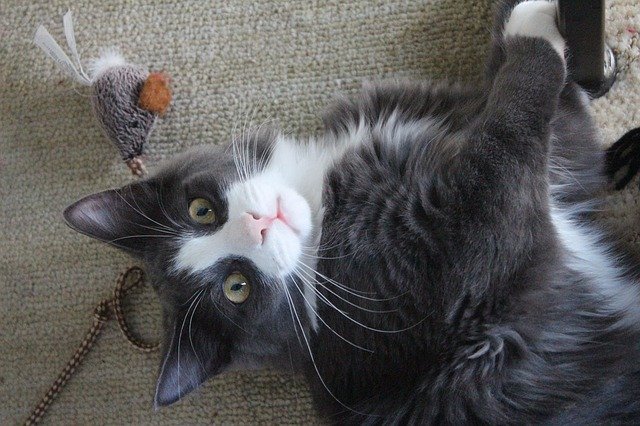
Provide Entertainment for Your Cat
While away, provide your cat with some form of entertainment, especially if he will have to be by himself for a prolonged period. Cats can suffer from boredom and stress from being left alone too long and will try to find an outlet for their stress, even if it means chewing on plastics. A great way to keep your feline entertained while you are away is by leaving around food or treats in areas he can hunt for and discover. This will keep him active and engaged enough to forget about eating plastics. Another thing you can do for your cat's entertainment is set up cat perches or trees so your cat can easily view the outdoors whenever he wants until you return.
Restrict Access to Plastics
Hide grocery bags and other plastic materials in areas your cat cannot easily find or reach. By doing so, you lessen the likelihood of your cat getting tempted to chew on these items. If keeping all plastics away isn't possible, you can keep your cat confined to a room while you are away but ensure that he is provided with a comfortable sleeping area with a window, toys, and of course, food and water.
Offer Toy Alternatives
Because cats sometimes chew plastics out of boredom, you want to offer a safer item, but with the same plastic feel to it if possible. There are several plastic chew toys you can get in pet stores, and while many of those are designed for dogs, they can still be helpful for felines. Another safe alternative is freeze-dried meats or food toys to keep him distracted and his mouth busy.
There are also a few toys that randomly spill food. These types are perfect for when you have to be away for longer than a few minutes.
Create/Increase Playtime
Because boredom can make your cat chew non-food items like plastic, they must get sufficient playtime with you. Create time for your cat to play with you or older kids (that have been trained on the correct ways to treat a cat). While cats enjoy their alone time, they also cherish any opportunity they get to play with their humans. When choosing games, pick interactive ones to keep your feline engaged.
For example, you can include prey-mimicking toys during your playtimes. One of such toys is the wand toy. You can control these types to mimic animals like mice and birds. You can also opt for hiding and seeking games with these toys to enable your cat to let out his predator instincts even though indoors.
Bitter Sprays
While this is often the last option for many, it works. Applying bitter sprays to plastics and other things your cat easily chews on can significantly lessen the habit. Do not spare any "usual" item as your cat will not be dissuaded from just tasting one bitter plastic basket or shoe. Spray as many of these items as possible while also combining this method with some of the other techniques discussed here.
Provide Scratching Posts
Even though many cat trees come designed with scratching posts, you can get separate scratching posts to provide your cat with enough spots to let out stress, exercise, and mark his territory.
Corrective Training
This technique should be applied immediately you spot your cat chewing on plastic. Try to get the cat's attention by offering a toy or a treat in the opposite direction. Do this as often as you find your cat eating plastic, and in no time, your cat will associate obeying your instructions with getting rewards.
Why Do Cats Eat Plastic? Conclusion
Why do you think your cat eats plastic? Could it be connected to any of the reasons below? Even though we looked at some of the most typical possible reasons for the behavior, all cats are different, and your cat's trigger could be something else.
If you still do not understand why your feline eats plastic and are bothered by the behavior after all the methods seem to do nothing, it may be time to book an appointment with a vet for proper diagnosis and treatment. Do not delay further, mainly if it is a habit that has gone unchecked for a long time.
About the Author
Kirsten Heggarty
Kirsten created The Pet Handbook with the aim of sharing her knowledge about pets, pet food, healthy habits, and more. All of her advice is based on years of her own experience with her pets, and feedback that she has received from grateful readers about her tips. If you want to know more please read the About Me page.

